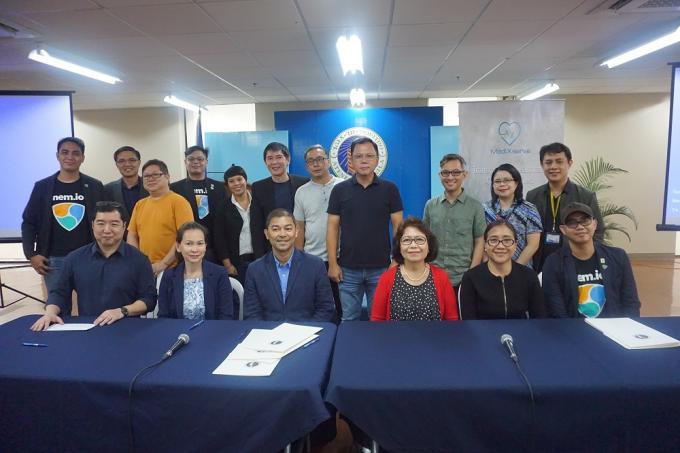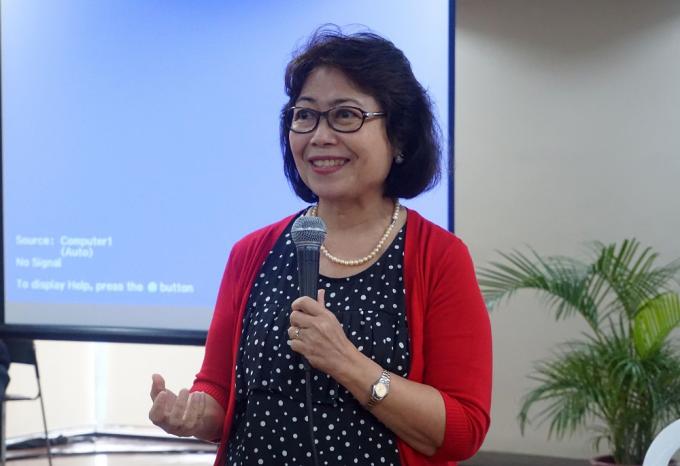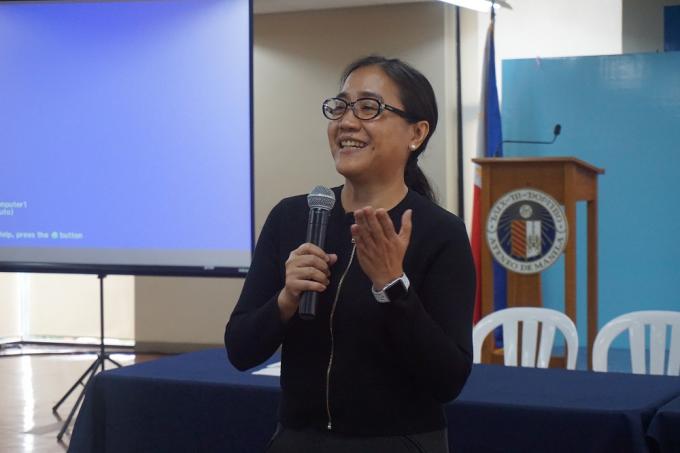First university-based blockchain research lab launched
Blockchain is a technological innovation that will make data more widely accessible with greater efficiency and speed and still ensure its security. This emerging technology can be a challenge to analyze, understand and adopt data.
Enter the Ateneo MediXserve Blockchain Education and Research (AMBER) Laboratory.
On August 8, 2018, the Ateneo de Manila University,MediXServe and NEM Foundation signed a memorandum of agreement to build AMBER Laboratory. As the first university-based blockchain research laboratory in the country, AMBER Lab will support the introduction of blockchain technologies in developing countries. It will serve as a think tank, research center and an incubation center for blockchain-based startups.

Representatives from Ateneo de Manila University, MediXServe, and NEM Foundation at the MOA Signing
Blockchain is a distributed data-based technology that makes mass collaboration possible. By using a peer-to-peer transaction system, it addresses the challenges of transparency, speed and red tape in business transactions.
“I think it is heartening to know that there is this collaboration that is not just for profit; it helps the vision of defeating poverty,” Dr. Maria Luz Vilches, Vice President for the Loyola Schools, said at the launch. The laboratory, she added, is aligned with the university’s goal to combat poverty. “It is a very ambitious goal. As our university president Fr. Jett Villarin SJ said, ‘We might not be able to reach the goal but that is the goal. We have to keep on getting at it.’ So I am very happy about this.”

The laboratory is aligned with the university’s goal to combat poverty, according to Dr. Maria Luz Vilches, Vice President for the Loyola Schools.
Jorge Azurin, CEO of MediXServe, shared the same sentiment: “Blockchain technology is for the poor. It was created with the hope of helping the powerless, the underserved.” As a new technology, blockchain would need a “village to build this research,” Azurin said.
Heading the ‘village’ is Dr. Regina Estuar, who also serves as the director of the Ateneo Java Wireless Competency Center.
“Blockchain technology is for the underserved. It is very transparent; it makes everything secure; lessens the transaction[processes] and red tape. It eases up a lot of things and the underserved will be served better with that.”

Dr. Regina Estuar will head AMBER Lab.
Ateneo’s foray into blockchain technology, Estuar said, is congruent with the university’s mission to do more for others: “It is the essence of why we are all here. It is a big task and there is a lot that we need to do.”
AMBER Laboratory will be housed at the School of Science and Engineering.
